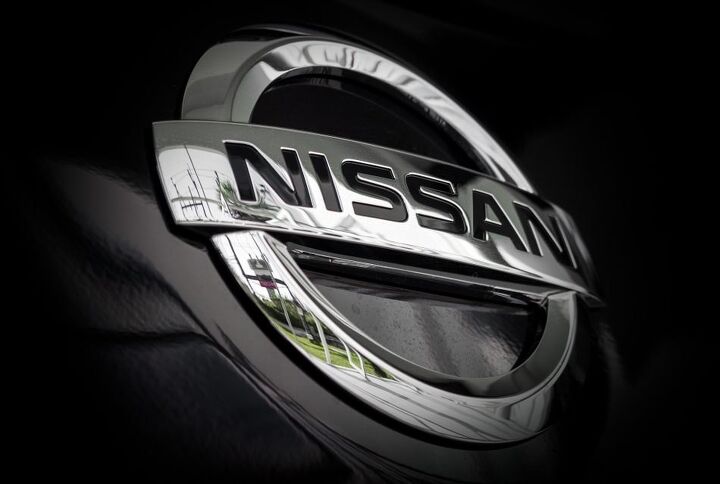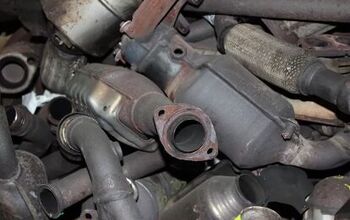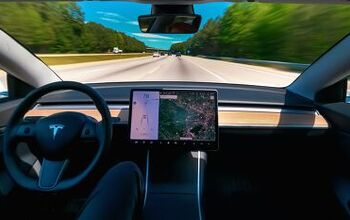Nissan and Renault Chief Engineers to Meet, Rekindled Joint Projects on the Agenda

Anybody with more than a casual interest in the automotive industry will tell you the relationship between Nissan and Renault is falling apart. Even the alliance’s founder, executive-on-the-run Carlos Ghosn, says it’s on the cusp of going under. But existing employees have tried to be a little more optimistic, acknowledging that the business partnership has become strained while making suggestions to correct its course.
One plan involves pushing more collaborative projects, which is one of the main reasons for forming an industrial alliance. Renault Chairman Jean-Dominique Senard has already said both sides are committed to making the partnership succeed, citing joint projects as a primary focus. Alliance engineers will meet in Japan at the end of January to discuss new development programs — and attempt to revive a few that fell by the wayside.
According to Reuters, Gilles Le Borgne, recently scooped from rival automaker PSA, will meet Nissan’s Tsuyoshi Yamaguchi, to discuss joint engineering projects ahead of the alliance board meeting on January 30th.
From Reuters:
One area of focus will be hybrid power systems, a field where, analysts say, the alliance has not effectively pooled its research and development efforts. Each of the three members of the alliance has developed their own systems.
“That’s been among the sources of the friction,” said [one of three sources] close to the alliance. “But now the three systems are there, we’ll need to use them in the most efficient way possible.”
Nissan will use the E-Tech hybrid system developed by Renault on its Juke small SUV, while Renault will use the Nissan-developed e-Power system on its Kadjar model, particularly in Asia, according to the same sources.
Mitsubishi is still using its own hybrid system on its best-selling Outlander.
One of the main reasons other automakers have been partnering up is to share the costly burden of electric vehicle development. Unfortunately, the Renault-Nissan-Mitsubishi Alliance has failed to focus itself in that regard. Considering large investments will need to continue being made in order to keep pace with rivals (as the entire industry braces for a slowdown), the group may have already created serious problems for itself. Neither Nissan nor Renault made particularly rosy financial predictions last year; 2020 is shaping up to be no better.
Ghosn’s recipe for success worked well coming out of the last recession, building Nissan’s market share. But the company fell into a slump after he left to refocus on the greater alliance and prepare himself for retirement. A couple of years later, he was arrested in Japan over charges of financial misconduct. He blames his successor, former CEO Hiroto Saikawa, for the downturn.
Blaming one man seems a little silly for an automaker with so many problems. Nissan certainly would have found itself in a better position if it managed to push new product in a more timely manner. By the time the United States become enamored with crossovers, Nissan was still heavily dependent on sedan and compact car sales. Obviously, the alliance believes this can be remedied by working more closely on future projects — especially those pricey electric ones.
[Image: Memory Stockphoto/Shutterstock]

A staunch consumer advocate tracking industry trends and regulation. Before joining TTAC, Matt spent a decade working for marketing and research firms based in NYC. Clients included several of the world’s largest automakers, global tire brands, and aftermarket part suppliers. Dissatisfied with the corporate world and resentful of having to wear suits everyday, he pivoted to writing about cars. Since then, that man has become an ardent supporter of the right-to-repair movement, been interviewed on the auto industry by national radio broadcasts, driven more rental cars than anyone ever should, participated in amateur rallying events, and received the requisite minimum training as sanctioned by the SCCA. Handy with a wrench, Matt grew up surrounded by Detroit auto workers and managed to get a pizza delivery job before he was legally eligible. He later found himself driving box trucks through Manhattan, guaranteeing future sympathy for actual truckers. He continues to conduct research pertaining to the automotive sector as an independent contractor and has since moved back to his native Michigan, closer to where the cars are born. A contrarian, Matt claims to prefer understeer — stating that front and all-wheel drive vehicles cater best to his driving style.
More by Matt Posky
Latest Car Reviews
Read moreLatest Product Reviews
Read moreRecent Comments
- SPPPP I am actually a pretty big Alfa fan ... and that is why I hate this car.
- SCE to AUX They're spending billions on this venture, so I hope so.Investing during a lull in the EV market seems like a smart move - "buy low, sell high" and all that.Key for Honda will be achieving high efficiency in its EVs, something not everybody can do.
- ChristianWimmer It might be overpriced for most, but probably not for the affluent city-dwellers who these are targeted at - we have tons of them in Munich where I live so I “get it”. I just think these look so terribly cheap and weird from a design POV.
- NotMyCircusNotMyMonkeys so many people here fellating musks fat sack, or hodling the baggies for TSLA. which are you?
- Kwik_Shift_Pro4X Canadians are able to win?


































Comments
Join the conversation
Murano Cross-Cabriolet EV!